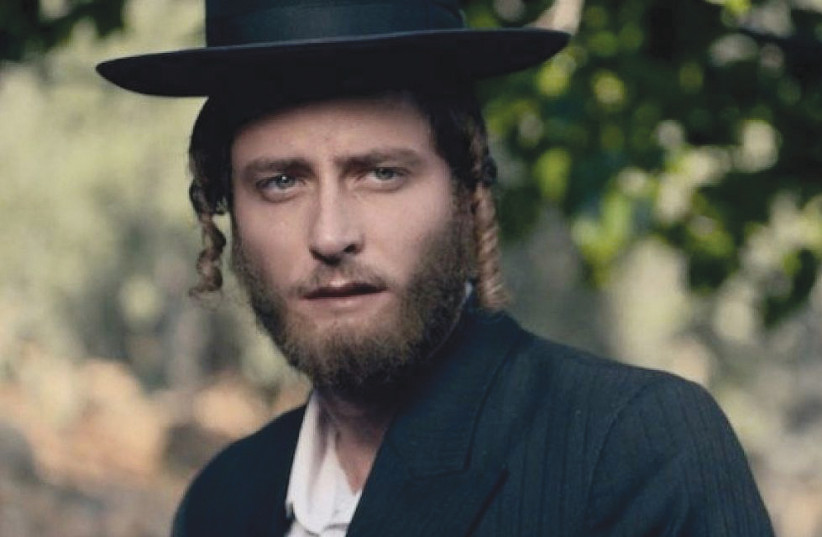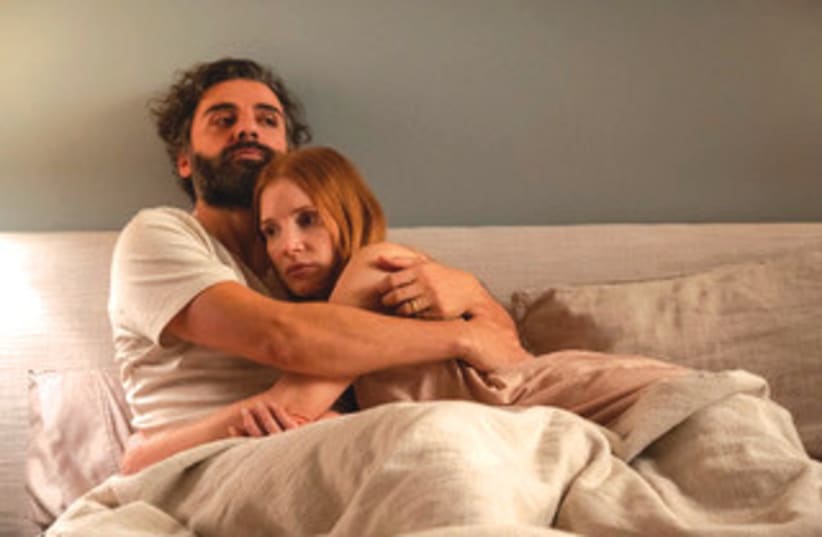When Daniel Bergman, Ingmar Bergman’s son, sought out Hagai Levi, the Israeli creator of BeTipul, the series about a psychologist seeing patients that was remade as in the US as In Treatment, as well as in dozens of other countries, to update the classic 70s series, Scenes from a Marriage, it was clear why Bergman turned to him. BeTipul is a brilliant concept, in which both of those in each session end up revealing truths about themselves they did not understand until they sat down to talk.
The original Swedish version of Scenes from a Marriage, starring Liv Ullmann and Erland Josephson, which premiered as a television series and then a movie in the early 1970s, is about a couple who end up understanding much more about themselves and their relationship than they had ever guessed they could through a series of long conversations they have at different points in their lives. There were three basic elements to the series that made it a worldwide sensation, which is said to have caused the divorce rate in Sweden to spike: that even a couple who seems to have it all is troubled by simmering resentments and all kinds of problems; that looking deep into themselves through introspection and psychotherapy can bring out the truth, which is a worthy, even a noble goal; and that a marriage is a relationship that continues to evolve even after it technically ends in a divorce.
These ideas were novel at the time, and seeing a very buttoned-up, soft-spoken Swedish couple discuss their deepest feelings was fascinating. In the nearly half a century that has elapsed since then, however, culture and art have been overwhelmed by everyone discussing every feeling, no matter how fleeting or ostensibly uninteresting it may be to anyone but the person experiencing it. Feelings are posted, tweeted about, shouted about.
And herein lies the challenge for the remake: how to make a couple discussing feelings seem important when it is now so common. Levi does his best to make the series relevant to today’s world by reversing the gender roles and by casting two wonderful actors, Jessica Chastain as Mira and Oscar Isaac as Jonathan. He also adds a layer of ethnicity, making Jonathan into a lapsed Orthodox Jew, whose faith haunts him even though he says he has lost it. While the series builds as it goes on, it feels familiar and warmed-over in a way that the original did not. I suspect that this series will be enjoyed most by those who never saw the first version.
While the original opened with the couple being interviewed for a magazine article about their marriage, in the new version, they have agreed to speak about their lives for a young academic (Sunita Mani), who is doing research into gender roles in marriage. Mira and Jonathan do their best to present themselves in a positive light. She works long hours in hi-tech and earns a high salary, while he, a professor with much more free time, is responsible for the bulk of the childcare for their young daughter, Ava, and they are more than fine with their roles. But the porcelain-skinned Mira looks distracted and wan in this conversation and something is upsetting her, an issue which builds to a climax in this episode and shows the deep fissures in their marriage.


In subsequent episodes, continuing the role reversal, it is she who loses her attraction for her husband and is tempted away from him by a younger man, a hi-tech colleague from Tel Aviv played by Shtisel’s Michael Aloni. As they hammer out their divorce and each attempt to move on, they both question what they originally had in their marriage and try to recapture it. Anyone who has been in a relationship will see themselves in these characters at different moments and it may disprove Tolstoy’s maxim from Anna Karenina, that happy families are all alike, but each unhappy family is miserable in a different way. There are patterns to their discontent that seem to underlie most relationships.
One aspect of the series that struck me as odd was how they seemed to consider child-rearing a monumentally destructive burden. They have one healthy, well-behaved daughter and both earn enough so that they can hire a babysitter whenever they need, yet they remember her first few years as a “nightmare” that soured them on the idea of having more children. As the series progresses, Mira takes actions that seem terribly harmful toward their daughter, which make her unsympathetic. A backstory that reveals why she acts the way she does is introduced gracefully late in the series, but she has already pushed viewers more firmly into Jonathan’s corner. The fact that in the final three episodes, she becomes more model-like and glammed up makes her increasingly less accessible and I cared more and more about Jonathan.
WHILE CHASTAIN is a fine actress, she is not very exciting here and it was hard to banish the memory of the purity and intensity that Ullmann brought to the series. But Levi’s secret weapon is Isaac, who is the greatest actor of his generation and a genuine movie star as well: sexy, engaging and believably self-deprecating when needed. Had any other actor played Jonathan, I might have dismissed this series as what people used to call “chilled white whine.” But he made me care about Jonathan and root for him, and because he cared about Mira, I began to care about her, too. His Orthodox background makes the character that much more interesting, as he struggles with a sense of responsibility and guilt and even quotes from prayers and the Bible.
The series, which was filmed during the pandemic, has a framing device with the actors arriving masked and joining a masked crew on the set, which did not add much of anything.
It is essentially a two-person show, but there are a few other characters. Tovah Feldshuh is a good choice to play Jonathan’s mother. Nicole Beharie and Corey Stoll play friends of the couple, who are open about their troubled marriage, but they don’t make much of an impression.
It is Mira and Jonathan we spend most of these five hours with and while I did feel suspense as to how it would all work out, in the end, I was let down by where the two of them ended up. I think the real charm of both this series and the original – and the secret to their success – is that they tell us that even people who seem to have the most charmed lives are really just as troubled and confused as the rest of us. Schadenfreude, and not the psychobabble, is what keeps us watching.
The five-part series premieres on September 13 on Cellcom TV, Yes VOD, Hot HBO, Hot VOD and Next TV.
